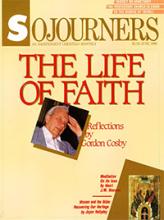In the spring of the year, the time when kings go forth to battle, David sent Joab, and his servants with him, and all Israel; and they ravaged the Ammonites, and besieged Rabbah. But David remained at Jerusalem. It happened, late one afternoon, when David arose from his couch and was walking upon the roof of the king's house, that he saw from the roof a woman bathing; and the woman was very beautiful. And David sent and inquired about the woman. And one said, "Is not this Bathsheba, the daughter of Eliam, the wife of Uriah the Hittite?" So David sent messengers, and took her; and she came to him, and he lay with her....And the woman conceived; and she sent and told David, "I am with child."
So David sent word to Joab, "Send me Uriah the Hittite...." When Uriah came to him, David asked...how the war prospered. Then David said to Uriah, "Go down to your house"....But Uriah slept at the door of the king's house....David said to Uriah, "...Why did you not go down to your house?" Uriah said to David, "The ark and Israel and Judah dwell in tents; and my lord Joab and the servants of my lord are camping in the open field; shall I then go to my house, to eat and to drink, and to lie with my wife?...I will not do this thing." The next day David invited him, and he ate in his presence and drank, so that he made him drunk; and in the evening he went out to lie on his couch with the servants of his lord, but he did not go down to his house.
Read the Full Article

